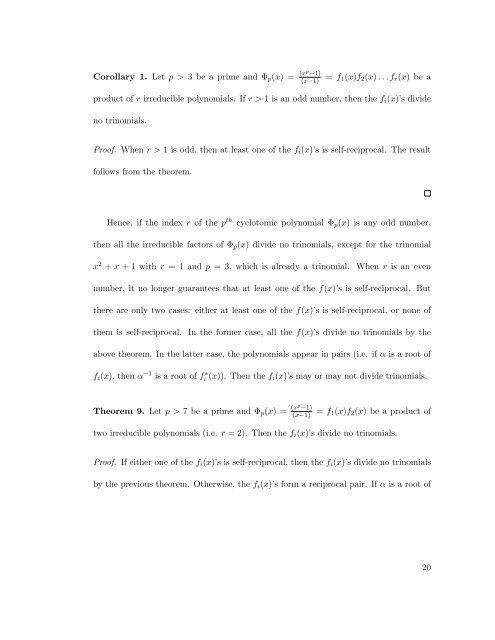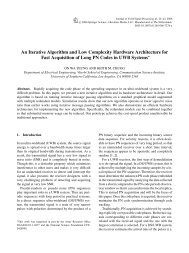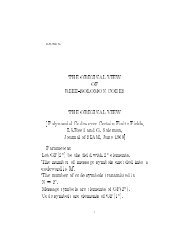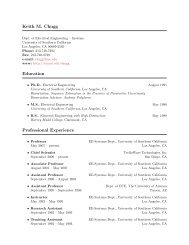Irreducible Polynomials Which Divide Trinomials Over GF(2). - The ...
Irreducible Polynomials Which Divide Trinomials Over GF(2). - The ...
Irreducible Polynomials Which Divide Trinomials Over GF(2). - The ...
- No tags were found...
You also want an ePaper? Increase the reach of your titles
YUMPU automatically turns print PDFs into web optimized ePapers that Google loves.
Corollary 1. Let p > 3 be a prime and Φ p (x) = (xp −1)(x−1)= f 1 (x)f 2 (x) . . . f r (x) be aproduct of r irreducible polynomials. If r > 1 is an odd number, then the f i (x)’s divideno trinomials.Proof. When r > 1 is odd, then at least one of the f i (x)’s is self-reciprocal. <strong>The</strong> resultfollows from the theorem.Hence, if the index r of the p th cyclotomic polynomial Φ p (x) is any odd number,then all the irreducible factors of Φ p (x) divide no trinomials, except for the trinomialx 2 + x + 1 with r = 1 and p = 3, which is already a trinomial. When r is an evennumber, it no longer guarantees that at least one of the f(x)’s is self-reciprocal. Butthere are only two cases: either at least one of the f(x)’s is self-reciprocal, or none ofthem is self-reciprocal. In the former case, all the f(x)’s divide no trinomials by theabove theorem. In the latter case, the polynomials appear in pairs (i.e. if α is a root off i (x), then α −1 is a root of fi ∗(x)). <strong>The</strong>n the f i(x)’s may or may not divide trinomials.<strong>The</strong>orem 9. Let p > 7 be a prime and Φ p (x) = (xp −1)(x−1)= f 1 (x)f 2 (x) be a product oftwo irreducible polynomials (i.e. r = 2). <strong>The</strong>n the f i (x)’s divide no trinomials.Proof. If either one of the f i (x)’s is self-reciprocal, then the f i (x)’s divide no trinomialsby the previous theorem. Otherwise, the f i (x)’s form a reciprocal pair. If α is a root of20









